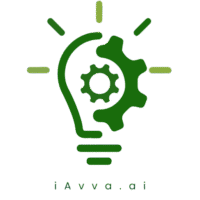In an era where technology is reshaping the landscape of professional development, AI Coach Assist emerges as a groundbreaking tool designed to enhance the coaching experience. This innovative solution leverages artificial intelligence to provide real-time insights, personalized feedback, and data-driven recommendations during coaching calls. As organizations increasingly recognize the importance of effective coaching in fostering employee growth and engagement, AI Coach Assist stands at the forefront of this transformation, promising to revolutionize how coaching is conducted.
The integration of AI into coaching is not merely a trend; it represents a fundamental shift in how we approach personal and professional development. By harnessing the power of machine learning and natural language processing, AI Coach Assist can analyze conversations, identify patterns, and offer actionable insights that human coaches may overlook.
This technology empowers coaches to focus on what truly matters—building relationships and facilitating growth—while AI handles the analytical heavy lifting.
As we delve deeper into the benefits and functionalities of AI Coach Assist, it becomes clear that this tool is not just an enhancement; it is a catalyst for change in the coaching landscape. Visit iAvva Store
Key Takeaways
- AI Coach Assist enhances coaching calls by providing real-time insights and support to coaches.
- The benefits of using AI in coaching calls include improved performance, personalized feedback, and enhanced efficiency.
- AI Coach Assist works by analyzing speech patterns, tone, and content to provide valuable suggestions and guidance to coaches during calls.
- AI plays a crucial role in improving coaching effectiveness by offering data-driven insights and personalized recommendations.
- The impact of AI Coach Assist on call efficiency includes reduced call duration, improved customer satisfaction, and increased productivity for coaches.
The benefits of using AI in coaching calls
The advantages of incorporating AI into coaching calls are manifold, beginning with enhanced personalization. Traditional coaching often relies on a one-size-fits-all approach, which can overlook the unique needs and challenges faced by individual coachees. AI Coach Assist addresses this limitation by analyzing data from previous interactions and tailoring recommendations to suit each person’s specific context.
This level of customization fosters a more engaging and effective coaching experience, as coachees feel understood and supported in their journey. Moreover, AI can significantly improve the efficiency of coaching sessions. By automating routine tasks such as note-taking and summarizing key points, AI Coach Assist allows coaches to dedicate more time to meaningful dialogue and strategic planning.
This not only enhances the quality of the coaching interaction but also ensures that critical insights are captured and easily accessible for future reference. As a result, both coaches and coachees can maximize their time together, leading to more productive sessions and ultimately better outcomes.
How AI Coach Assist works
At its core, AI Coach Assist operates through advanced algorithms that analyze verbal and non-verbal cues during coaching calls. By utilizing natural language processing, the system can interpret the nuances of conversation, identifying key themes, emotions, and areas for improvement.
This analysis is conducted in real-time, providing coaches with immediate feedback on their performance and the dynamics of the conversation.
Additionally, AI Coach Assist integrates seamlessly with existing communication platforms, making it easy for organizations to adopt this technology without overhauling their current systems. Coaches can access insights through a user-friendly dashboard that highlights critical metrics such as engagement levels, sentiment analysis, and progress tracking. This intuitive interface empowers coaches to make informed decisions on the fly, enhancing their ability to guide coachees effectively.
The role of AI in improving coaching effectiveness
AI plays a pivotal role in enhancing coaching effectiveness by providing data-driven insights that inform decision-making. Coaches often rely on their intuition and experience to guide their sessions; however, these methods can be subjective and prone to bias. With AI Coach Assist, coaches gain access to objective data that highlights trends and patterns in coachee behavior, enabling them to tailor their approach accordingly.
Furthermore, AI can facilitate continuous improvement by tracking progress over time. By analyzing historical data from coaching sessions, AI Coach Assist can identify areas where coachees excel or struggle, allowing coaches to adjust their strategies as needed. This iterative process fosters a culture of growth and accountability, as both coaches and coachees can see tangible evidence of progress and areas for further development.
The impact of AI Coach Assist on call efficiency
The introduction of AI Coach Assist has a profound impact on call efficiency, streamlining the coaching process in several ways. First and foremost, by automating administrative tasks such as scheduling and follow-up reminders, coaches can focus their energy on delivering high-quality interactions rather than getting bogged down in logistics. This shift not only saves time but also enhances the overall experience for both parties involved.
Additionally, AI Coach Assist’s ability to provide real-time feedback during calls allows coaches to pivot their strategies instantly based on coachee responses. For instance, if a coachee expresses confusion or frustration during a session, the AI can alert the coach to these emotional cues, prompting them to adjust their approach on the spot. This level of responsiveness ensures that coaching sessions remain relevant and impactful, ultimately leading to better outcomes for coachees.
Addressing concerns about AI in coaching calls
Despite the numerous benefits of integrating AI into coaching calls, concerns about its implementation persist. One common apprehension is the fear that AI may replace human coaches or diminish the personal touch that is essential in effective coaching relationships. However, it is crucial to understand that AI Coach Assist is designed to complement rather than replace human interaction.
The technology serves as a powerful ally that enhances coaches’ capabilities while allowing them to maintain their unique approach and emotional intelligence. Another concern revolves around data privacy and security. As AI systems collect and analyze sensitive information from coaching sessions, organizations must prioritize safeguarding this data.
Implementing robust security measures and adhering to industry standards will be essential in building trust among users. By addressing these concerns transparently and proactively, organizations can foster a positive perception of AI Coach Assist as a valuable tool for professional development.
Integrating AI Coach Assist into existing coaching processes
Successfully integrating AI Coach Assist into existing coaching processes requires careful planning and collaboration among stakeholders. Organizations should begin by assessing their current coaching frameworks and identifying areas where AI can add value. This may involve piloting the technology with a select group of coaches before rolling it out organization-wide.
Training is also a critical component of successful integration. Coaches must be equipped with the knowledge and skills necessary to leverage AI effectively during their sessions. This may involve workshops or training sessions focused on understanding how to interpret AI-generated insights and incorporate them into their coaching strategies.
By fostering a culture of collaboration between human coaches and AI technology, organizations can create a more dynamic and effective coaching environment.
Training and support for using AI Coach Assist
To maximize the potential of AI Coach Assist, organizations must invest in comprehensive training and ongoing support for their coaches. Initial training should cover the fundamentals of how the technology works, including its capabilities and limitations. Coaches should also be encouraged to experiment with different features during practice sessions to build confidence in using the tool effectively.
Ongoing support is equally important as technology continues to evolve. Organizations should establish channels for coaches to share experiences, ask questions, and provide feedback on their use of AI Coach Assist. This collaborative approach not only fosters a sense of community among coaches but also enables organizations to refine their training programs based on real-world experiences.
Real-life examples of successful implementation of AI Coach Assist
Several organizations have already begun reaping the benefits of implementing AI Coach Assist in their coaching processes. For instance, a leading tech company integrated this technology into its leadership development program, resulting in a significant increase in participant engagement and satisfaction scores. Coaches reported feeling more empowered to address individual coachee needs thanks to the real-time insights provided by AI.
Another example comes from a global consulting firm that utilized AI Coach Assist to enhance its performance management system. By analyzing data from coaching sessions over time, the firm was able to identify trends in employee performance and tailor development programs accordingly. This data-driven approach not only improved individual outcomes but also contributed to overall organizational success.
Future developments and potential advancements in AI Coach Assist
As technology continues to advance at an unprecedented pace, the future of AI Coach Assist holds exciting possibilities. One potential development is the incorporation of advanced predictive analytics that could forecast coachee performance based on historical data trends. This capability would enable coaches to proactively address potential challenges before they arise, further enhancing the effectiveness of coaching interventions.
Additionally, as natural language processing technology evolves, we may see even more sophisticated conversational capabilities within AI Coach Assist. This could lead to more nuanced understanding of coachee emotions and motivations during sessions, allowing for deeper connections between coaches and coachees. The potential for continuous improvement in this space is vast, promising an even more impactful future for coaching practices.
The potential of AI Coach Assist in revolutionizing coaching calls
In conclusion, AI Coach Assist represents a transformative force in the realm of coaching calls, offering unprecedented opportunities for personalization, efficiency, and effectiveness. By harnessing the power of artificial intelligence, organizations can elevate their coaching practices to new heights while ensuring that human connection remains at the core of the process. As we look ahead to the future developments in this space, it is clear that embracing technology will be essential for organizations seeking to foster growth and development among their employees.
The journey toward integrating AI into coaching may come with challenges; however, the potential rewards far outweigh any obstacles encountered along the way. By investing in training, addressing concerns transparently, and fostering collaboration between human coaches and technology, organizations can unlock new levels of success for both individuals and teams alike. The revolution in coaching calls has begun—are you ready to embrace it?
FAQs
What is AI Coach Assist?
AI Coach Assist is an automated approach for call coaching that uses artificial intelligence to analyze and provide feedback on sales and customer service calls.
How does AI Coach Assist work?
AI Coach Assist uses natural language processing and machine learning algorithms to analyze the content and context of sales and customer service calls. It then provides feedback and recommendations to the call agent based on the analysis.
What are the benefits of using AI Coach Assist?
Some of the benefits of using AI Coach Assist include improved call quality, more consistent coaching, and the ability to scale coaching efforts across a large team of call agents. It can also help identify trends and patterns in call performance.
Is AI Coach Assist widely used in the industry?
AI Coach Assist is gaining popularity in the sales and customer service industry as organizations look for ways to improve call quality and performance. However, it is not yet universally adopted and its use may vary by company and industry.
Are there any limitations to using AI Coach Assist?
While AI Coach Assist can provide valuable insights and feedback, it may not fully capture the nuances of human interaction. It is important for organizations to use AI Coach Assist as a tool to support, rather than replace, human coaching and feedback efforts.












Leave a Reply